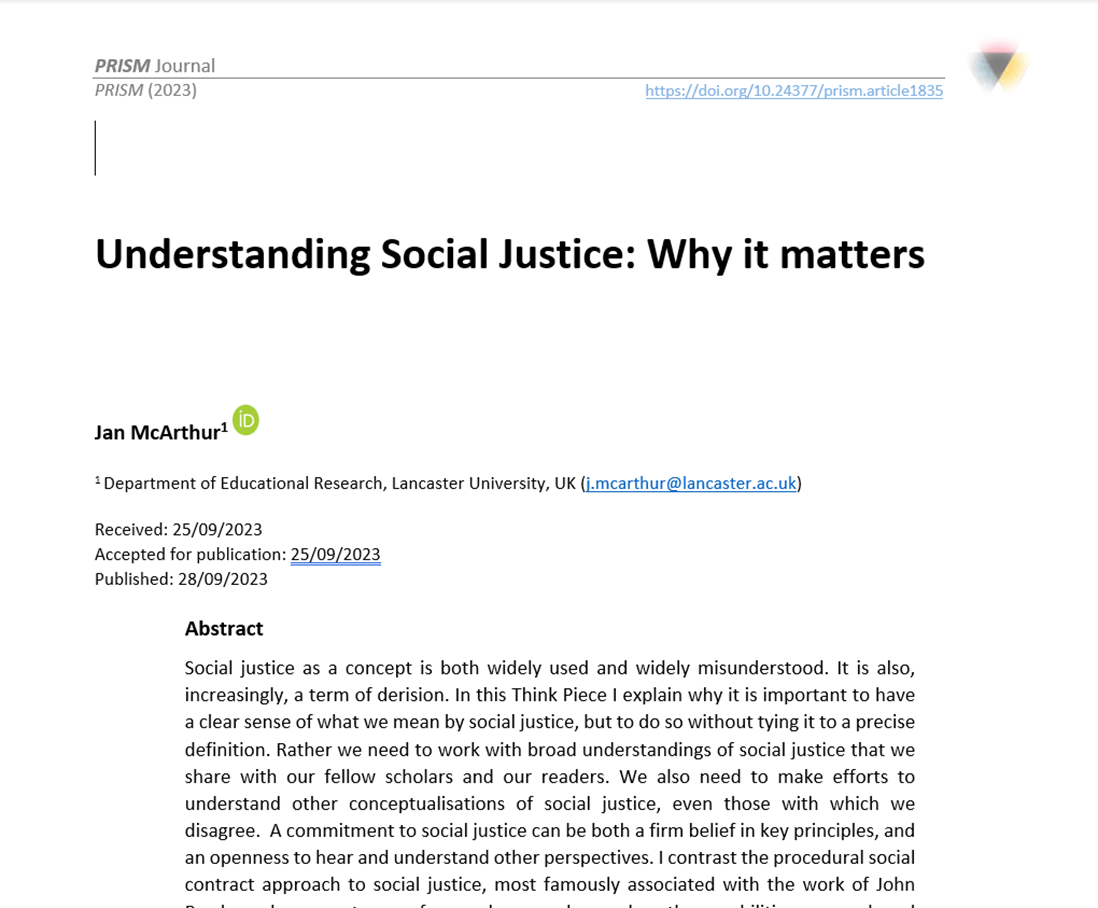Understanding Social Justice: Why it matters
DOI:
https://doi.org/10.24377/prism.article1835Keywords:
Social justice, Critical theory, capabilities approach, decolonial, HonnethAbstract
Social justice as a concept is both widely used and widely misunderstood. It is also, increasingly, a term of derision. In this Think Piece I explain why it is important to have a clear sense of what we mean by social justice, but to do so without tying it to a precise definition. Rather we need to work with broad understandings of social justice that we share with our fellow scholars and our readers. We also need to make efforts to understand other conceptualisations of social justice, even those with which we disagree. A commitment to social justice can be both a firm belief in key principles, and an openness to hear and understand other perspectives. I contrast the procedural social contract approach to social justice, most famously associated with the work of John Rawls, and more outcomes-focussed approaches such as the capabilities approach and critical theory. My own work is based in a critical theory understanding of social justice which looks at hidden and unseen forms of oppression in an historical context. And yet, I also acknowledge the terrible neglect of issues of race and colonialism in early critical theory. This neglect has become more apparent as we respond to the welcome need to decolonialise education and philosophy. This Think Piece finishes with a reflection on how to engage with indigenous understandings of social justice without appropriation. I advocate an open and forgiving approach to social justice that sits firmly with a deep and thoughtful commitment.
Downloads

Downloads
Published
Issue
Section
License
Copyright (c) 2023 Jan McArthur

This work is licensed under a Creative Commons Attribution-NonCommercial-NoDerivatives 4.0 International License.
Authors retain copyright and grant the journal the right of first publication with the work.
The version of the article published as part of this issue is licensed under a Creative Commons Attribution-NonCommercial-NoDerivatives 4.0 International Licence and allows others to read, download, copy, distribute, print, search, link to the full text of the first version of this article, or to use it for any other lawful purpose in accordance with the license. The author maintains copyright for the article published in this journal.
This journal provides immediate open access to its content and has no submission or publication fees.


